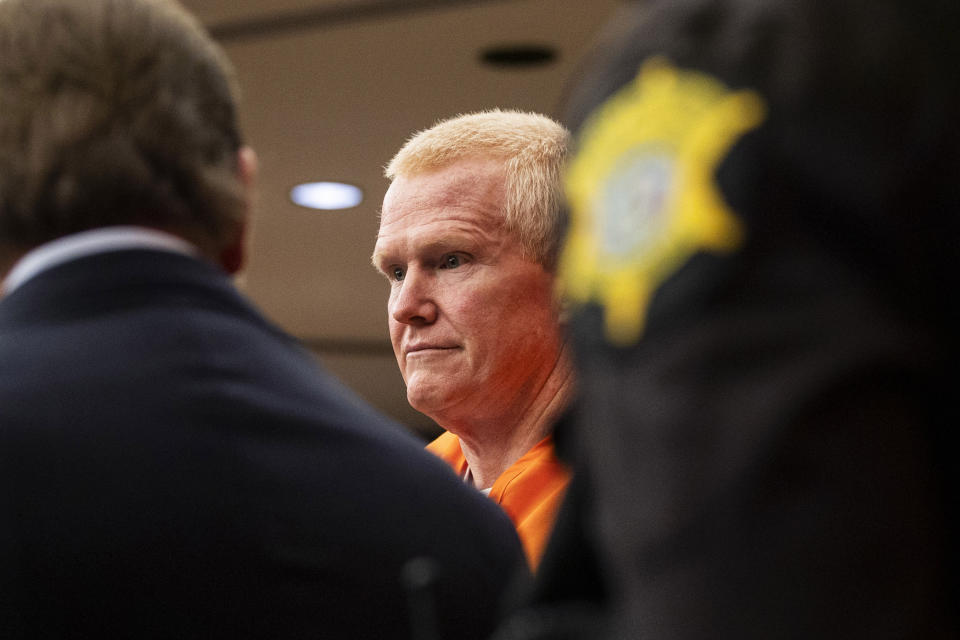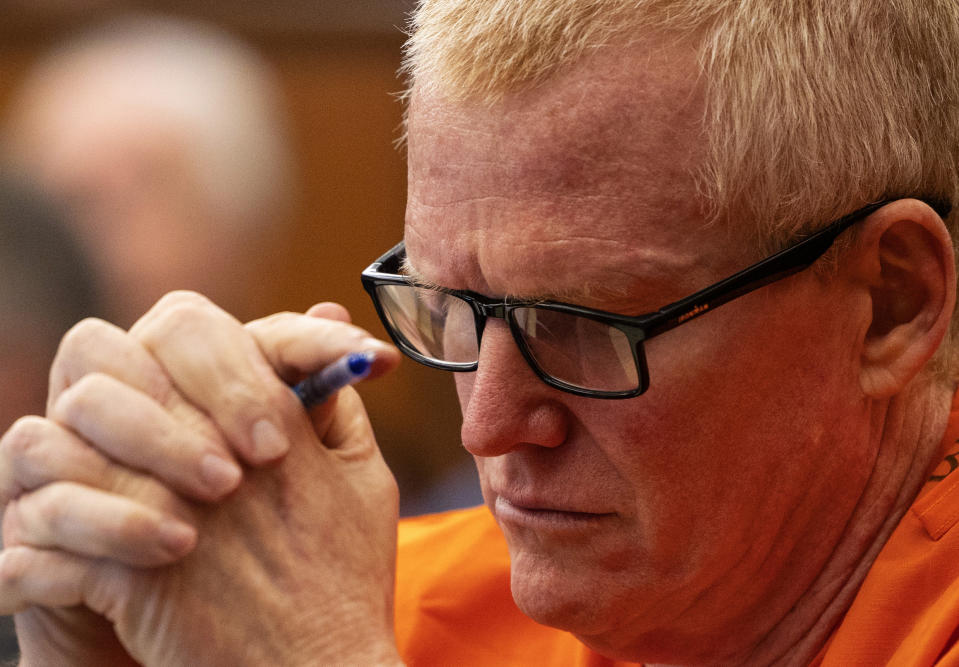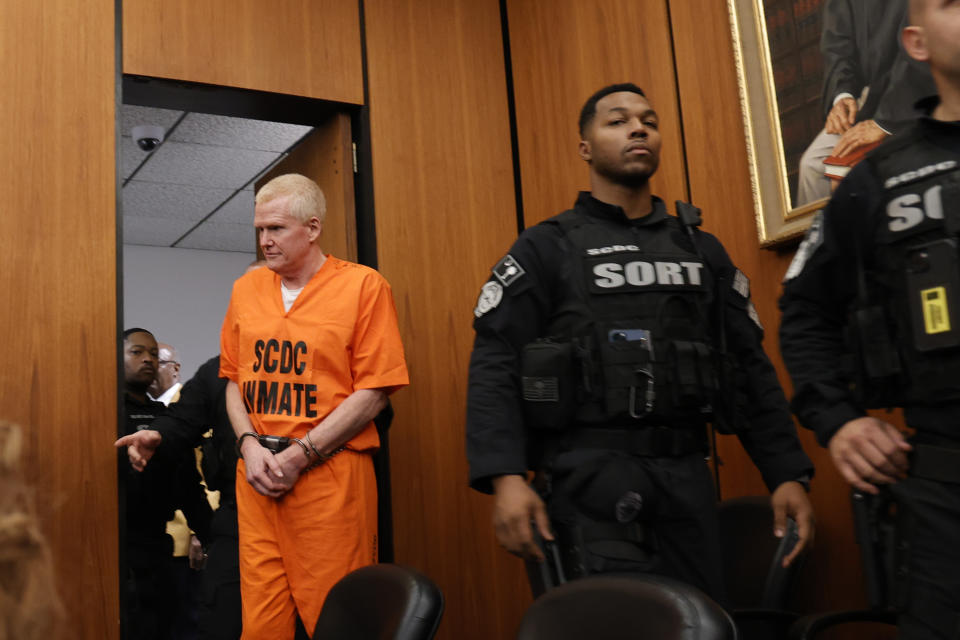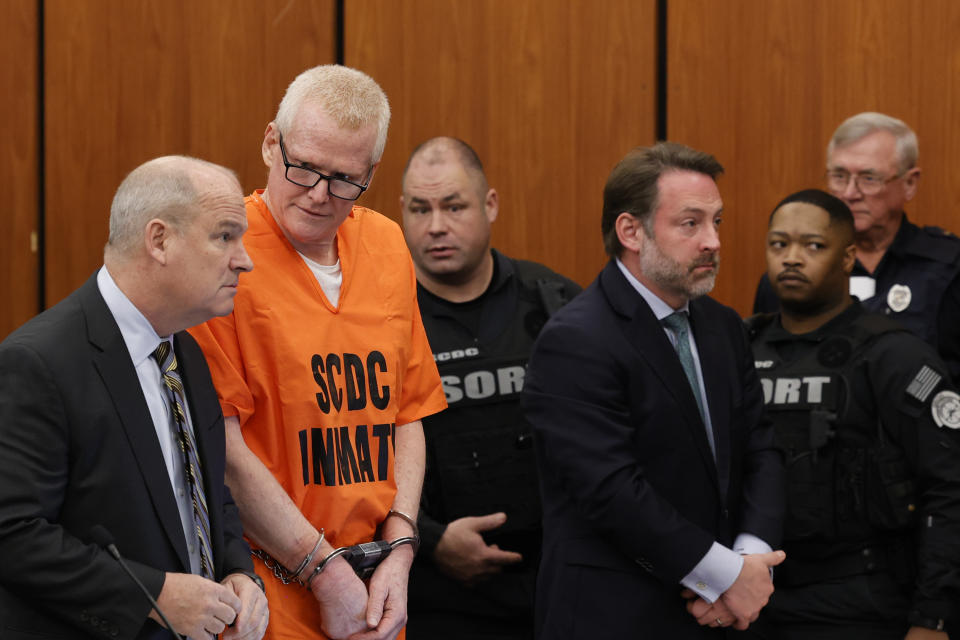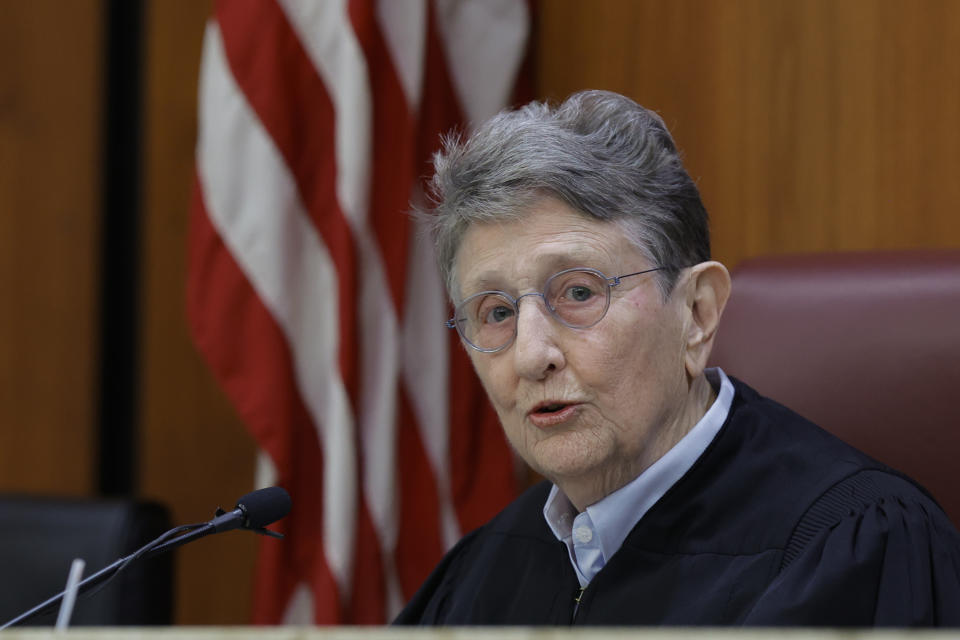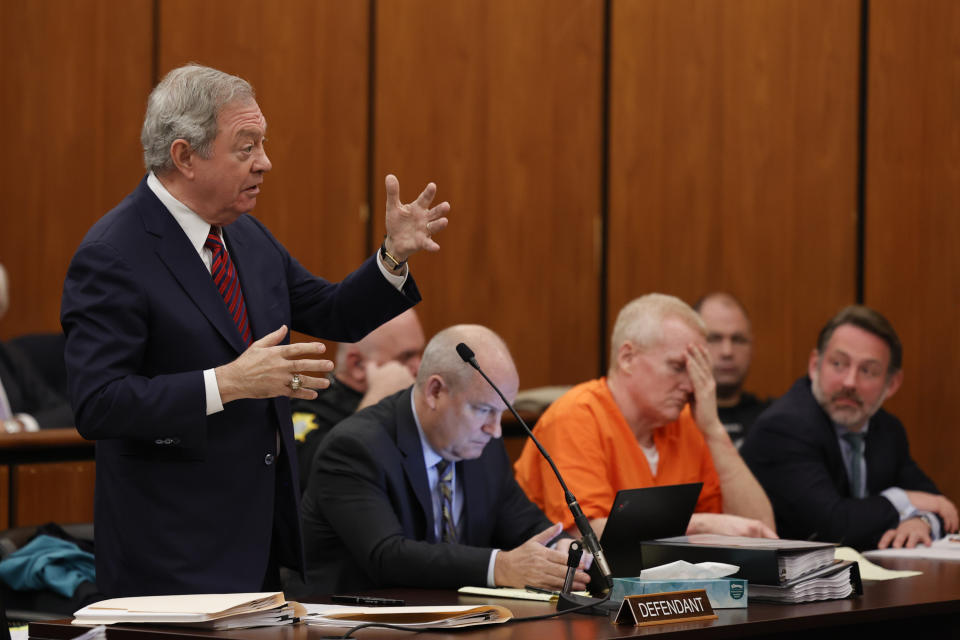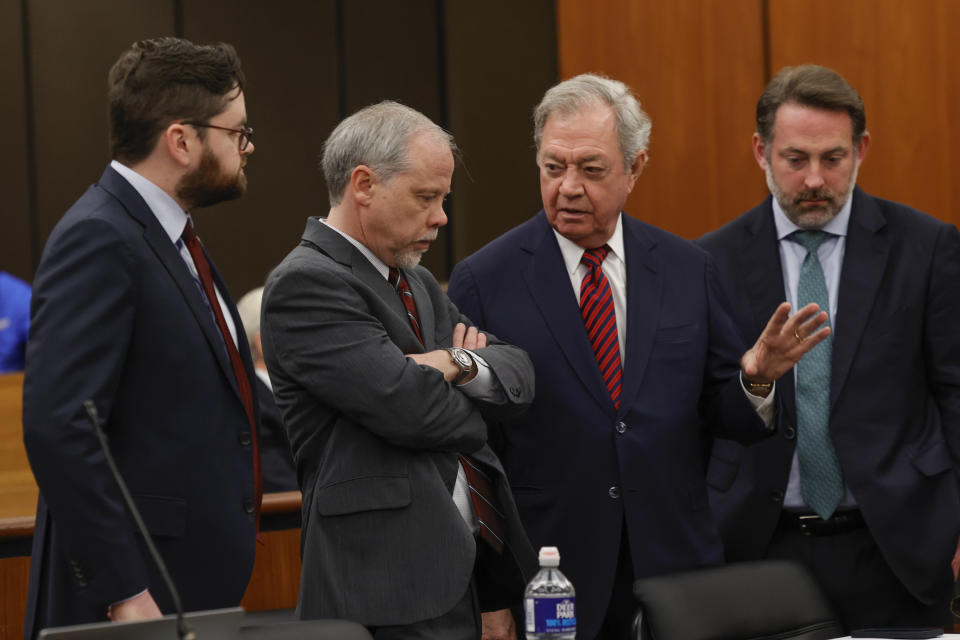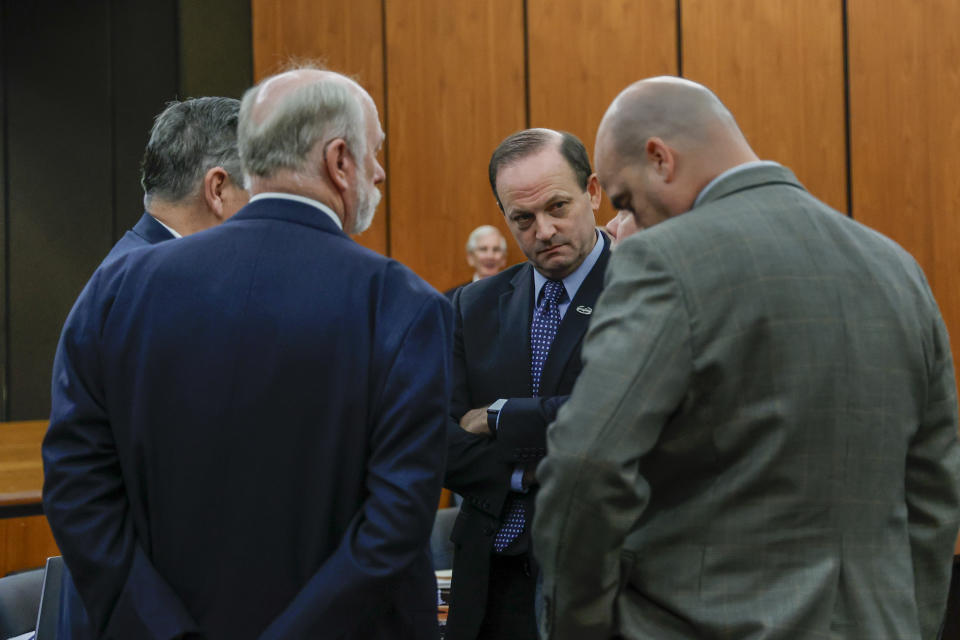Alex Murdaugh faces uphill battle for new murder trial as judge limits permissible evidence
Alex Murdaugh faces a steep uphill battle in his push for a new murder trial after a state judge on Tuesday limited witness questioning and set a high burden of proof surrounding accusations that the court clerk tampered with the jury during last year's sensational proceedings.
Even if Murdaugh’s lawyers prove that Colleton County Clerk of Court Becky Hill told jurors not to believe his testimony and pressured them into reaching a guilty verdict, they must also demonstrate that doing so prejudiced them against Murdaugh, former South Carolina Supreme Court Justice Jean Toal ruled.
Toal also said she will not ask about other wide-ranging accusations of wrongdoing against Hill, including that the elected official misused public funds and plagiarized parts of her new book on the Murdaugh saga. Toal took over the request for a new trial after the judge overseeing the case, Clifton Newman, recused himself late last year.
Hill has sworn that she did not ask jurors about Murdaugh’s guilt and never suggested that he committed the murders. State police are investigating the jury tampering and misuse of office allegations against Hill but have not charged her with any crimes. Her attorneys did acknowledge last month, however, that she had submitted a BBC reporter’s writing to her co-author “as if it were her own words.”
Evidentiary hearings beginning Jan. 29 will include Hill and the deliberating jurors. The judge will not seek testimony from Newman. She also expressed doubt that she would admit thousands of Hill's emails as exhibits.
“I’m very, very reluctant to turn this hearing about juror contact into a wholesale exploration about every piece of conduct by the clerk alleged to have been improper on its own, indicative of her characteristics or personality, or anything of that nature," Toal said.
“This is not the trial of Ms. Hill," she later added, emphasizing that the inquiry is focused on the court clerk's interactions with jurors and the jury's ability to impartially reach a verdict.
Murdaugh is serving life imprisonment without parole after a jury found him guilty last March of killing his wife, Maggie, and younger son, Paul, in June 2021. He also faces an additional 27 years after pleading guilty in November to stealing millions of dollars.
Toal's narrow rules were tougher than those sought by Murdaugh's lawyers during the Tuesday hearing, held to determine the scope of the three-day evidentiary hearing later this month. Attorney Jim Griffin argued that prejudice should be assumed. The state carries the burden of proving that “unauthorized third-party communication" such as Hill's alleged interaction was “harmless," Griffin said.
Toal sided with the state, noting that the court has an affidavit from only one deliberating juror who swears that outside contact occurred. She said she wants to hear specific evidence about how the juror perceived Hill's alleged comments.
Toal struck another blow to the defense by blocking questions about what effect the jury tampering alleged by Murdaugh's lawyers might have had on jury deliberations. She will ask jurors only about its possible impact on their final conclusion, not how they reached their decision.
“No one — not myself or anyone else — is going to be asking a juror about the specifics of their deliberation,” Toal said.
State prosecutor Creighton Waters had asked Toal to prevent a “far-ranging fishing expedition” into the post-trial revelations of Hill's plagiarism and wiretapping charges against her son. Waters said conversations with jurors and clerk's staff indicate the verdict was not influenced by anything “unprofessional or untoward."
Defense attorney Dick Harpootlian argued that Hill's new book — which is currently unpublished “for the foreseeable future,” according to her legal team — is relevant because it establishes a motive. He said Hill told an assistant during the trial that a guilty verdict would be good for her book sales.
Toal reprimanded the longtime lawyer for his continued suggestion that Hill sought to enrich herself by pushing jurors toward a guilty verdict.
“I hope that’s the last time you’re gonna repeat that until I ask for that again,” Toal said at one point. “Let’s move on from that.”
The evidentiary hearings will be on the record and held in open court. Court television cameras will be allowed but cannot focus on the testifying jurors, who will be referred to by their number and not their names. Toal also expressed openness to other ways of ensuring the jurors' privacy, such as obscuring their faces during testimony.
A lawyer for two jurors asked that Toal deny news outlets entry into the courtroom to limit the “litigative stress” on his clients. Attorney Joe McCulloch suggested that Toal avoid the “distraction and the imposition” of the news media by allowing journalists to instead watch the examinations elsewhere on a livestream.
“No damage would be done to the right of the public to know and participate in the proceedings,” he argued, to no avail.
___
Pollard is a corps member for the Associated Press/Report for America Statehouse News Initiative. Report for America is a nonprofit national service program that places journalists in local newsrooms to report on undercovered issues.

 Yahoo News
Yahoo News 